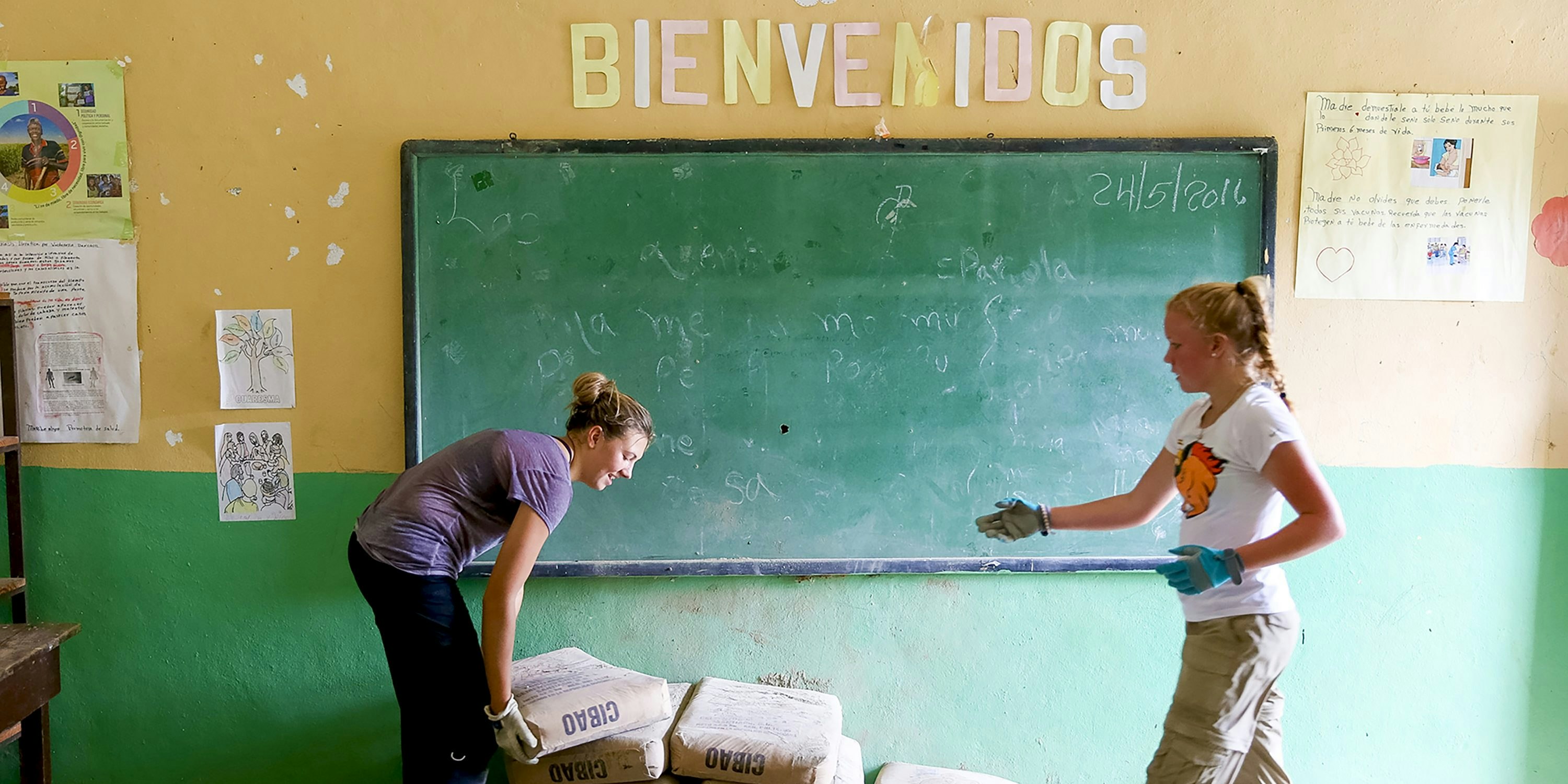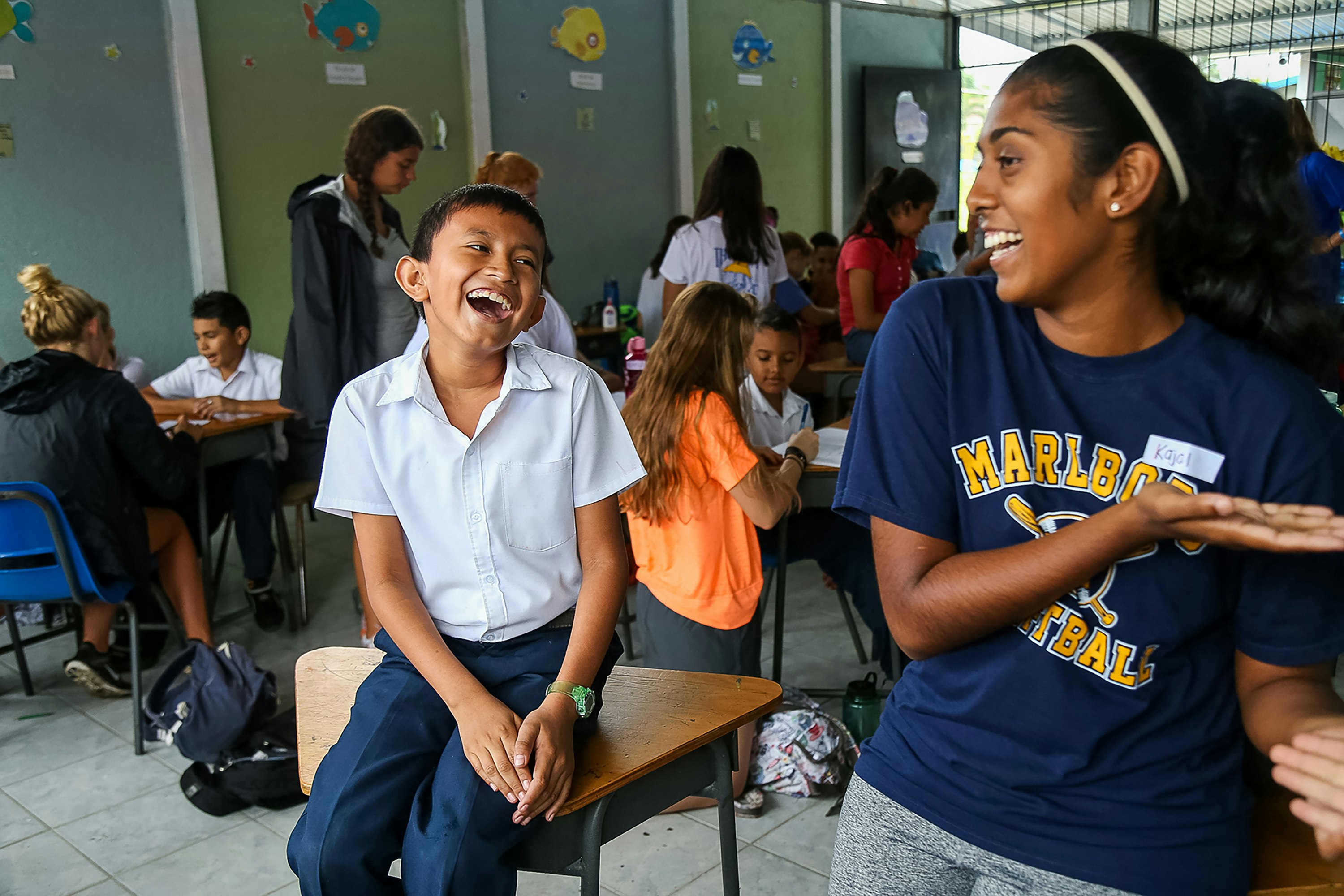Travel this program in the future
| Find out when new dates are available |
Work alongside health care professionals on high-impact public health projects across the Dominican Republic. Explore the diverse regions of this beautiful Caribbean island while immersing yourself in local culture and practicing your Spanish in a healthcare setting. Identify health needs of rural, urban, wealthy, and impoverished communities and help develop meaningful public service initiatives. Earn your Wilderness First Aid and CPR certification and apply your new skills to helping communities in need.
Similar Programs Available Now

Costa Rica: Spring Break Surf and Service
Surf & serve on a jungle getaway
Age 14-18
$3295 plus Airfare
-
-
Country:
-
-
-
Department:
- Student Travel
-
-
-
Duration:
- 16 Days
-
-
-
Max. Students:
- 16
-
-
-
Ages:
- 16-19
-
-
-
Cost:
- $5,445 plus Airfare
-
-
-
Service Hours:
- 30
-
-
-
Interests:
-
-
-
Service Types:
-
-
-
At-A-Glance:
-
Accomodation Amenities
Adventure/Physicality
Educational Activities
On-Program Travel
-
Packing the right gear (and the right amounts) is the first step to an incredible travel experience. Follow these tips to pack like a pro:
Travel light. Pack only the essentials. You’ll need less than you think!
Consider no checked bag. We strongly recommend that you consider packing only a carry-on size bag. This prevents your luggage getting lost or separated from you, keeps your bag manageable, and helps you be more mobile on your travel day.
Bring the right clothes. Pack clothes that are culturally appropriate for your destination and acceptable for service projects. This means bringing long shorts (think Bermuda and basketball shorts), t-shirts with sleeves to cover shoulders, and appropriate footwear.
Leave your valuables behind. While traveling, it’s easier for things to get lost, stolen, or damaged. Keep any prized possessions safe at home.
Check with TSA. Make sure your luggage complies with TSA regulations, especially your carry-on. Useful tip: Pack an empty water bottle and fill it up after security.
Extra paperwork? If you need additional forms filled out to get credit for your service hours, no problem! Bring these forms with you so they can be completed in-country.
A school backpack is ideal as it will be used for daily activities and outings.
- Passport
- Two photocopies of passport
- Wallet/money
- Book and/or journal
- Pen
- Phone
- Camera
- Chargers
- Ear buds
- Change of clothes
- Water bottle
- Medication
- Additional community service forms
- Visa documentation (if applicable)
- Consent to Travel Letter (for students under 19, recommended by the US State Dept but not required)
- Rustic Pathways emergency contacts
A 40-50 liter duffel bag or backpack is ideal.
Clothes
- Socks (15)
- Underwear (15)
- Pants/capris (2)
- Jeans (1)
- Collared shirt*
- Long, loose-fitting shorts for service project work. Something that provides coverage and protection while keeping you cool. (2-3)
- Long skirt
- T-shirts (8-12)
- Long sleeved shirt (1-2, lightweight)
- Fleece/hoodie
- Pajamas
- Swimsuit
- Quick dry towel
- Beach towel/sarong
- Rain jacket
- Light jacket
- Strappy sandals (like Tevas or Chacos)
- Sneakers (2)
- Sturdy shoes for service
- Sunglasses
- Hat (for sun)
- Work gloves
- Headlamp/flashlight
Toiletries
(Travel size bottles in Ziploc bags)
- Shampoo
- Conditioner
- Body wash
- Face wash
- Toothbrush
- Toothpaste
- Oxybenzone-free sunscreen (reef-safe)
- Bug spray
- Feminine hygiene products
- Contacts
- Contact solution
- Foam earplugs
- Personal med kit
- Deodorant
- Wet Wipes
- Razor/shaving cream
- Students must bring additional hand sanitizer and one disposable mask per day of the program, or three hand-washable masks.
- *On the program we will be visiting NGO offices so please make sure to bring a collared shirt (a polo shirt or a button down shirt is fine) that you can wear with jeans to these meetings.
- Shorts should be knee length—think Bermuda or basketball shorts—to be respectful to the local culture and traditions.
- Students must bring additional hand sanitizer and one disposable mask per day of the program, or three hand-washable masks.




